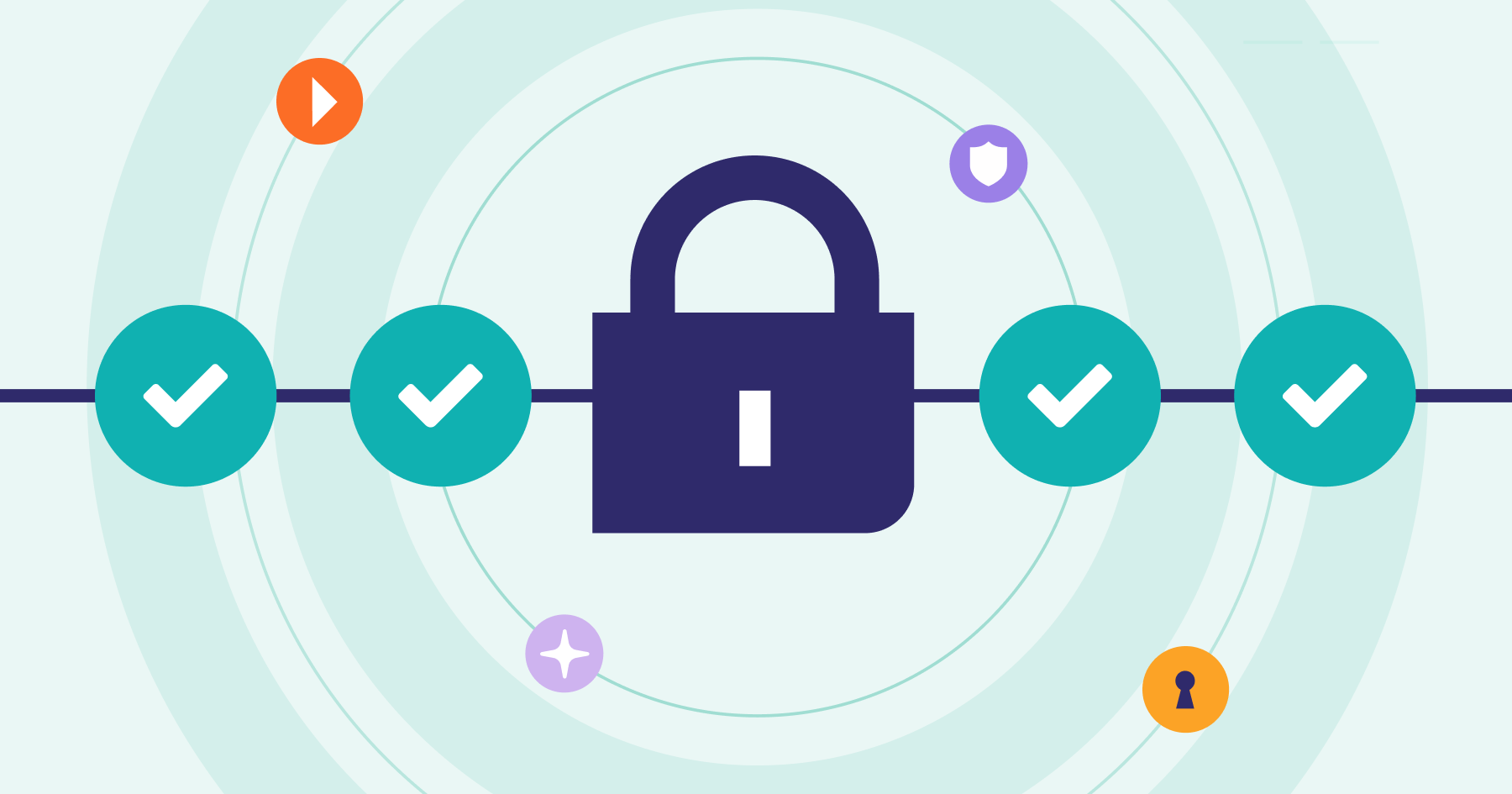Insecure secret management practices (SMPs) pose a significant risk to any company, especially those tasked with the storage and protection of their customers' data. It's a common problem, and it is often at the core of a company's risk register. A leaked secret can result in a loss of confidentiality and potentially a data breach. These types of incidents can lead to significant financial losses and a loss of trust amongst an entity's customer base.
For many companies, insecure SMPs may result from a lack of expertise or being unaware of the tools and strategies that exist to solve this issue. Appropriate SMPs can help reduce the potential for compromise and increase trust in an organization's secret management strategy. In this post, we will discuss secret management best practices, GitLab's ability to support those practices, and our strategy for improving the DevSecOps platform's native secret management capabilities.
Develop a cryptographic strategy
Every company needs a cryptographic strategy as a foundation to ensure developers are operating in a standardized way and all applications and their components are being developed in accordance with the company's cryptographic requirements.
Understanding the data your company processes, and your company's risk tolerance and threat landscape will help you develop a strong cryptographic strategy.
Secret generation
Secrets, including access tokens and SSH keys, should be generated using cryptographic devices such as Hardware Security Modules (HSM). These devices help generate cryptographically strong secrets and store them in a tamper- and intrusion-resistant manner.
While relying on physical devices can be costly and operationally prohibitive for companies, the leading cloud service providers offer cloud HSM services – for example, AWS CloudHSM and GCP Cloud HSM.
Secret storage
Storing secrets is just as critical as generating them. Generated secrets must be stored in a manner that supports secure long-term storage and enables users to securely retrieve and use them when necessary.
The leading cloud service providers, as well as security companies such as HashiCorp, offer cloud-based services for securely storing and retrieving secrets. These services enable users to seamlessly leverage secrets within their processes and code, thereby eliminating the need to hardcode secrets.
How does GitLab support secret storage?
GitLab provides native support for the following secret management providers:
- Vault by HashiCorp
- Google Cloud Secret Manager
- Azure Key Vault
By configuring GitLab to connect with a secret management provider, secrets are explicitly requested only when needed by a CI job. When secrets aren't needed by CI jobs, they remain securely stored in the secret management service's environment, thereby reducing the potential for compromise. In addition to native support for the above secret management providers, GitLab also offers OIDC authentication to authenticate against other providers (i.e. AWS Secret Manager). This is a much more secure and preferred method of storing secrets when compared to storing and masking secrets as CI/CD variables.
Secret use
Secrets should be used for a single purpose. Reusing secrets across different applications or services increases the potential for exposure and increases the impact if the secrets are compromised.
To reduce the potential for exposure or malicious activity, access to secrets should be controlled with the principle of least privilege in mind. Access should only be granted to the individuals or services that require such access in order to support their work and operational activities.
How does GitLab support secret use?
GitLab provides administrators with a strong role-based access control model and also offers the ability to create custom roles, thereby allowing administrators to align access profiles with their organizational standards and risk tolerance.
GitLab also allows users to perform secret detection to check for unintentionally committed secrets and credentials. GitLab Ultimate users can enforce automatic responses to leaked secrets, such as revoking the secret, to mitigate the impact of leaked credentials.
Auditability
Access and use of secrets should be auditable and attributable. In an ideal scenario, individuals would not have access to view secrets in plaintext, but the state of a company's operations are not always ideal.
Auditable and attributable secret management allows security teams to monitor for anomalous or malicious activity, and quickly respond to such activity through automated and manual intervention.
How does GitLab support auditability?
GitLab's audit events capture activities related to tokens and keys that are created within GitLab. Some examples include:
- personal access token events
- deploy token events
- cluster agent token events
These activities are saved to the database and are also available for audit event streaming for GitLab Ultimate customers.
Upcoming: GitLab Secret Manager
GitLab plans to launch a native secret management experience in late 2024. GitLab Secret Manager is a multi-tenant, cloud-based solution and will be accessible to both GitLab.com and self-managed customers via our Cloud Connector service. This new service offers an easy-to-use interface, consistent with the current CI/CD variables interface, making adoption easier than a third-party product with a minimal learning curve. The GitLab Secret Manager will ensure the security and protection of sensitive information in your CI pipelines.
For more information or questions about GitLab Secret Manager, please visit our MVC epic and leave a comment.
Next steps
Application security in the digital age
Read our survey findings from more than 5,000 DevSecOps professionals worldwide for insights on how organizations are grappling with increasing attack surfaces and changing attitudes towards security and AI.
Frequently asked questions
Key takeaways
- Insecure secret management risks data breaches; GitLab's native integration enhances security.
- Auditable and attributable secret management allows security teams to monitor for anomalous or malicious activity and quickly respond.
- GitLab supports secret storage and usage with robust access controls and detection tools.

